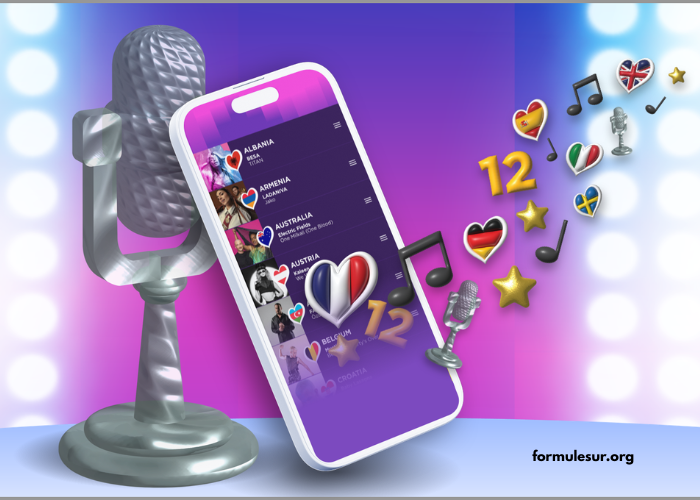The digital entertainment landscape is rapidly evolving. With groundbreaking innovations, shifting consumer behaviors, and advanced technology integration, 2025 is poised to redefine how audiences consume, interact with, and perceive entertainment. From streaming platforms and AI-driven content to virtual reality and immersive experiences, the future is digital, dynamic, and highly personalized.
Below, we explore the top digital entertainment trends that are shaping the industry in 2025 and beyond.
The Rise of Hyper-Personalized Content
AI-Powered Recommendations and Customization
Artificial Intelligence (AI) has transformed digital entertainment by offering users personalized content recommendations. In 2025, platforms are leveraging machine learning algorithms that analyze user behavior, preferences, and consumption patterns to deliver content tailored to individual tastes.
This shift ensures greater user engagement and satisfaction, increasing watch times and improving platform retention rates.
Interactive Storytelling and Custom Endings
Viewers are no longer passive consumers. With technologies like branching narratives and interactive storylines, users can now influence the direction of a movie or series. Netflix and other major platforms are investing heavily in these immersive formats, offering multiple story arcs and personalized endings.
Streaming Platforms Continue to Dominate
Evolution of Subscription Models
The streaming industry has grown exponentially, with platforms like Netflix, Disney+, Amazon Prime, and newer entrants competing for global viewership. In 2025, the trend leans toward hybrid models combining subscriptions (SVOD), ad-based (AVOD), and transactional video on demand (TVOD) to offer flexible options to users.
These models enhance accessibility, enabling consumers to choose plans that fit their preferences and budgets.
Expansion of Regional and Vernacular Content
Localized content is becoming a global phenomenon. In 2025, there’s a noticeable surge in the production and consumption of regional entertainment in native languages. Platforms are investing in local talent, regional dialects, and culturally rich stories to attract diverse audiences and tap into emerging markets.
The Emergence of the Metaverse in Entertainment
Virtual Reality (VR) and Augmented Reality (AR)
VR and AR technologies are revolutionizing entertainment by offering immersive experiences that blend the physical and digital worlds. In 2025, VR headsets are more accessible and affordable, allowing users to watch movies, play games, and attend concerts in a fully immersive 3D environment.
AR, on the other hand, is enhancing live sports and events by overlaying real-time stats, interactive graphics, and digital merchandise onto the physical world.
Virtual Concerts and Events
The metaverse has created a space where artists perform for millions of fans simultaneously, regardless of physical location. Virtual concerts, powered by platforms like Fortnite, Roblox, and Meta Horizon Worlds, are redefining live performances and fan engagement.
These events allow users to interact with avatars, buy virtual merchandise, and engage in real-time experiences from the comfort of their homes.
Gaming Becomes the New Entertainment Powerhouse
Cloud Gaming and Accessibility
Cloud gaming is eliminating the need for high-end consoles and hardware. Services like Xbox Cloud Gaming, NVIDIA GeForce Now, and Google Stadia are making high-quality games accessible across devices, including smartphones, tablets, and TVs.
In 2025, cloud gaming is more stable, offering low-latency streaming, cross-platform functionality, and affordable subscriptions, making gaming more inclusive and widespread.
Gamification of Content Consumption
Gamification is infiltrating entertainment platforms, turning passive experiences into interactive ones. Quizzes, challenges, achievements, and virtual rewards are being integrated into streaming apps, music platforms, and even news media to boost user engagement and loyalty.
Artificial Intelligence in Content Creation
AI-Generated Music, Scripts, and Animation
AI is now capable of composing music, generating scripts, and creating animations, significantly speeding up production timelines and reducing costs. Tools like OpenAI’s Sora and Runway’s Gen-2 are empowering creators to produce high-quality content with minimal resources.
By 2025, AI-generated content is gaining mainstream popularity, especially in short-form videos, web series, and indie film circles.
Virtual Influencers and Digital Avatars
Digital humans and AI-powered influencers are becoming brand ambassadors, streamers, and performers. These virtual personalities interact with audiences in real-time, blurring the lines between reality and fiction. Brands are leveraging their consistency, customizability, and cost-effectiveness for marketing and engagement.
The Evolution of Social Media Entertainment
Short-Form Video Dominance
Platforms like TikTok, YouTube Shorts, and Instagram Reels continue to dominate digital entertainment. In 2025, short-form videos remain the preferred medium for Gen Z and Millennials, thanks to their snackable nature, high virality, and creative potential.
Creators are using AI editing tools, filters, and effects to produce professional-quality content in seconds, leading to a democratization of entertainment.
Live Streaming and Real-Time Interaction
Live streaming has evolved from simple broadcasts to immersive, monetized experiences. From live Q&A sessions to gaming streams and shopping events, users are engaging with content in real time. Features like chat rooms, polls, and virtual gifting add a layer of interactivity that static content lacks.
Blockchain and NFTs in Entertainment
Decentralized Content Ownership
Blockchain is giving content creators greater control over their work. In 2025, decentralized platforms are allowing artists, musicians, and filmmakers to tokenize their work, distribute royalties transparently, and connect directly with their audiences.
Smart contracts ensure fair compensation and usage rights, reshaping the traditional production and distribution model.
Collectibles and Virtual Merchandise
Non-Fungible Tokens (NFTs) are transforming how fans engage with digital entertainment. Fans can now own exclusive digital art, scenes, music tracks, or merchandise. These collectibles hold value and provide unique fan experiences, such as backstage passes, early content access, and meet-and-greet opportunities.
Audio Entertainment Sees a Renaissance
Podcasting Explodes in Popularity
Podcasting has evolved from niche content to mainstream media. In 2025, celebrities, experts, and influencers are launching branded podcasts that span genres from true crime and comedy to education and news.
With the rise of smart speakers, in-car infotainment systems, and hands-free devices, audio content is becoming a preferred on-the-go entertainment option.
AI-Driven Audio Books and Voice Cloning
Audiobooks are being enhanced with AI-generated voices and personalized narrations. Voice cloning enables authors and celebrities to lend their voices to books, or even allow users to customize narration with their favorite voice styles.
This personalization is enhancing user experience, making audio books more appealing and engaging.
Cross-Platform Synergy and Integration
Unified Ecosystems for Seamless Experience
The future of digital entertainment lies in integrated ecosystems. In 2025, major tech and media companies are building platforms that seamlessly sync across TVs, smartphones, tablets, wearables, and smart homes.
This interconnected experience ensures that users can switch devices without losing progress, preferences, or personalization — enhancing user satisfaction.
Multi-Format Content Distribution
Content is no longer confined to one format or platform. A successful franchise may include a movie, a mobile game, a comic series, social media filters, and NFTs — all integrated into a coherent universe. This transmedia approach maximizes engagement and monetization.
Ethical and Regulatory Considerations
Data Privacy and User Consent
As platforms gather more user data to personalize experiences, concerns about privacy are growing. In 2025, there is a stronger emphasis on ethical AI, transparent data practices, and user consent protocols.
Regulators are enforcing stricter guidelines on data collection, cookie tracking, and algorithm transparency to protect consumers.
Combating Deepfakes and Misinformation
AI-generated deepfakes have become a serious concern. The industry is responding with verification tools, watermarking technology, and stricter policies to prevent the misuse of digital content.
Efforts to maintain authenticity and credibility are crucial in an age where synthetic media can easily distort reality.
The Future of Cinema in the Digital Age
Hybrid Releases and Premium VOD
Cinemas are embracing hybrid models. Blockbusters now release simultaneously in theaters and digital platforms through Premium VOD (Video On Demand), allowing users to choose how and where they watch.
This model balances convenience with the cinematic experience, especially in post-pandemic viewing habits.
Immersive Theatre Experiences
To stay relevant, theatres are evolving. IMAX, 4DX, and motion-enhanced cinema halls offer multisensory experiences that streaming can’t replicate. From moving seats to atmospheric effects, these formats are drawing audiences back to theatres for an unforgettable experience.
Conclusion: Embracing the Future of Entertainment
Digital entertainment in 2025 is an exciting blend of innovation, personalization, and immersion. The convergence of AI, AR/VR, blockchain, and smart platforms is reshaping how stories are told and experienced.
To thrive in this landscape, creators, brands, and platforms must adapt to emerging technologies, prioritize user-centric experiences, and remain agile in a fast-evolving market. The future of entertainment isn’t just digital — it’s dynamic, decentralized, and deeply interactive.



